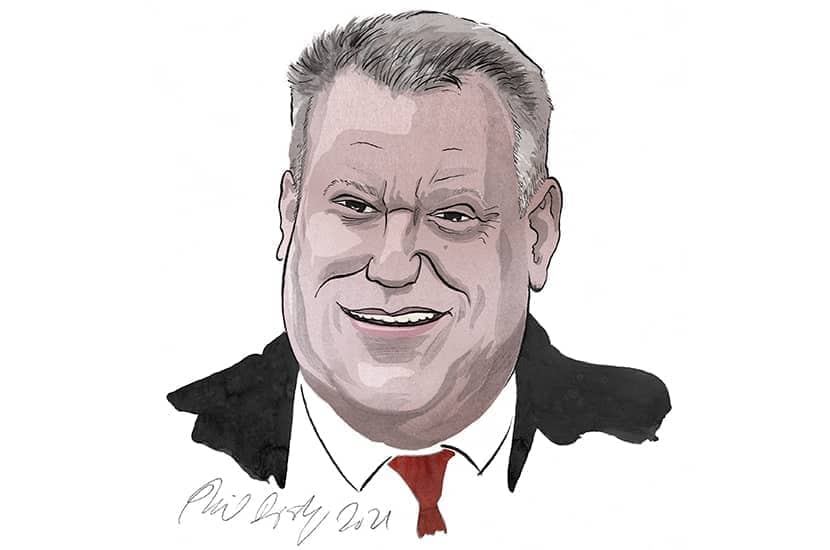In an eyrie at the top of the Cabinet Office sits David Frost, Boris Johnson’s former Brexit negotiator who is now the cabinet minister responsible for handling the European Union. His office has the genial feel of a don’s study — there’s a book of Anglo-Saxon verse on his table alongside one of Greek poetry — yet mention Frost’s name to even the most mild-mannered EU diplomats and they begin to fume.
In an effort to understand the apparent mismatch, I ask Frost if he feels the need to be aggressive in negotiations. ‘I hope not,’ he replies. But he does admit that he did feel that way when he first took on the job. ‘Unfortunately, under the previous negotiators, the EU had learned that we said things and didn’t necessarily stick by them. We had to go through a process of getting them to take our word seriously. And I think that some people interpreted that as sort of aggression or being difficult, but it was just us underlining that when we said something, that had to be taken into account. I think that process is now over, basically.’
The issue that now dominates Frost’s time is a legacy of those negotiations: the Northern Ireland Protocol. When Frost was chosen by Johnson to lead the Brexit talks, one of his main tasks was to drop the plans for the Irish backstop, which had been negotiated under Theresa May’s premiership. He has on his wall a framed and signed cartoon by the Telegraph’s Matt that shows a dismayed dog at Crufts being given an instruction: ‘Now remove the Irish backstop from the Withdrawal Agreement.’ Frost succeeded. But the protocol that replaced the backstop is creating its own difficulties. It is causing greater friction in trade between Northern Ireland and Great Britain, and Arlene Foster, the First Minister, has been forced out by unionist unease over it.








Comments
Join the debate for just £1 a month
Be part of the conversation with other Spectator readers by getting your first three months for £3.
UNLOCK ACCESS Just £1 a monthAlready a subscriber? Log in